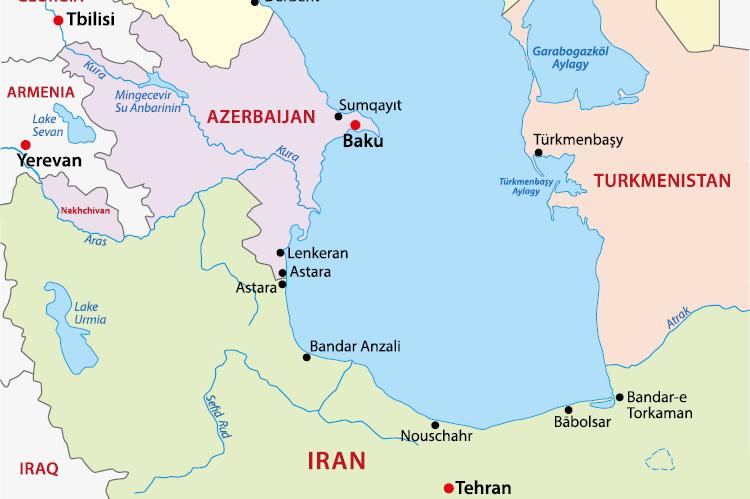Iran Signs Tripartite Gas Swap Deal With Neighboring Azerbaijan And Turkmenistan

Iran has signed a tripartite gas supply swap deal with its neighboring states Azerbaijan and Turkmenistan, to facilitate gas flow between the two countries. The agreement is expected to be operational at the beginning of winter, according to the Iranian oil minister, Javad Owji.
The deal will see Iran receive about 1.5bn-2bn m³/year from Turkmenistan at the Sarakhs border crossing, located in the northeastern Khorasan Razavi region. In return, Iran will deliver the equivalent amount of gas to Azerbaijan at the Astara crossing, Gilan province.
Signed during the 15th summit of the Economic Co-operation Organisation in Turkmen capital of Ashgabat, the deal will see the three countries cooperate in a gas swap beneficial to the two countries.
The Summit of the Economic Co-operation Organisation is a multi-national economic and political body founded in 1985 to bring together 10 Asian countries in the western, central, and southern parts of the region, cooperating both politically and economically.
Owji, who was part of the Iranian delegation to the summit, revealed Tehran had also settled a payment dispute that led to the shutdown of the gas pipeline supplying Turkmen gas to northern parts of Iran in 2017.
"Fortunately, with the good solutions of the ministry of oil and [state-owned] NIGC, the first installment of our debt settlement will be paid to Turkmenistan soon," Owji said.
Before Turkmenistan stopped gas export to Iran, Tehran imported 5bn-7bn m³/year natural gas from Turkmenistan through Korpedzhe-Kurt-Kuri and Dauletabad-Sarakhs-Khangiran pipeline routes with a capacity of 8bn m³/yr and 6bn m³/yr, respectively. This was in line with a 25-year gas supply contract signed by Iran and Turkmenistan in 1977.
However, Turkmengaz, a state-owned gas supply company, slowed the gas supply in 2016 before cutting off gas transmission to Iran due to what they term as the lack of Iran's commitment to contractual take-or-pay, resulting in significant debt over the previously supplied gas.
Although Iran acknowledged it has outstanding debts to Turkmenistan, it blamed UN sanctions that were in force until the 2015 nuclear deal was implemented in January 2016. Iran has been importing Turkmenia gas to meet the demand in the northern parts of the country far from the south, where most of its gas fields and reservoirs are located.
The commissioning of the new pipeline in August 2017 connecting Damghan in northern Iran to Neka on Iran's Caspian Sea coast drastically reduced the country's dependence on imported gas from its neighbors in the North to meet its domestic demand.
